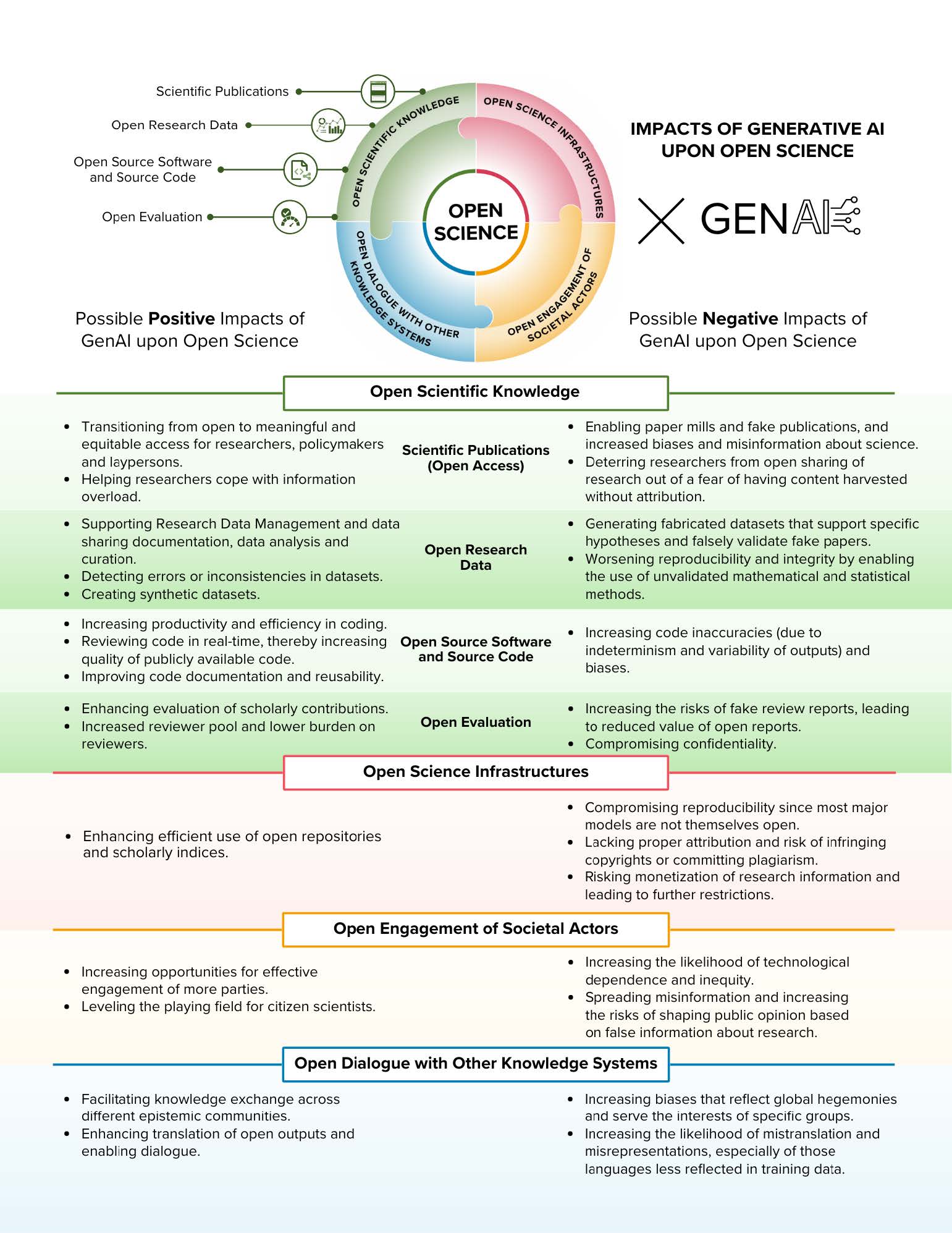A new publication from TIER2 partners on the impact of Generative AI on Open Science
A new publication from the TIER2 partners delves deeper into the potential positive and negative impacts of Generative Artificial Intelligence (GenAI) on Open Science (OS), offering a more nuanced perspective. The paper focuses specifically on the research-related dimensions of OS, omitting elements related to teaching and education.
It examines how GenAI is transforming research by providing tools for text refinement, code generation, and data analysis. Its integration into OS, which promotes accessible, transparent, and participatory research, presents both opportunities and challenges.

Impacts of generative AI upon open science
The paper highlights that GenAI, including large language models like ChatGPT, can enhance OS by improving access to knowledge, boosting infrastructure efficiency, and fostering collaboration across disciplines and with society. However, the publication also highlights the possibility that its potential could undermine OS values. The reliance of GenAI on vast datasets can perpetuate biases and errors, which may impact fairness, equity, and research integrity. While GenAI holds great potential, it requires critical assessment to safeguard the quality and reliability of research within the OS framework. Implementing mechanisms for validation and transparency can help mitigate risks and ensure alignment with OS values.
